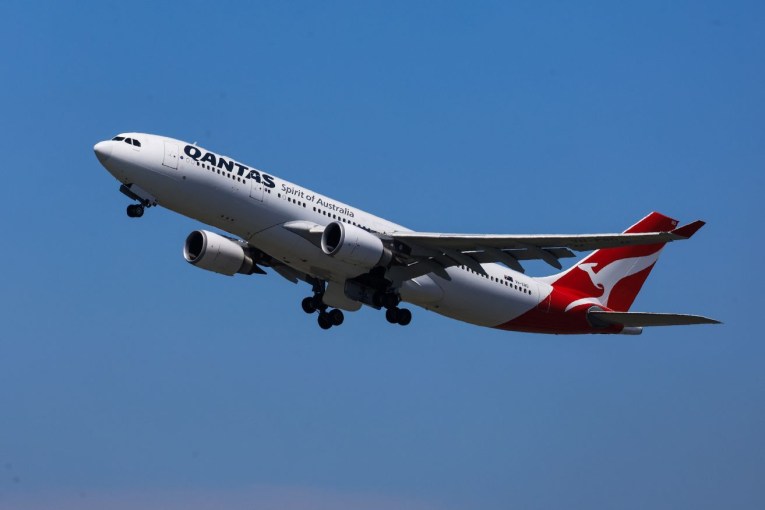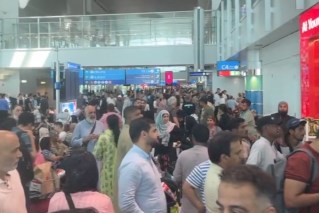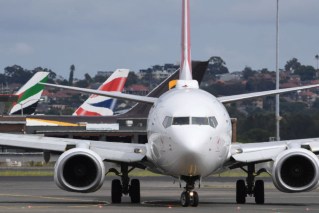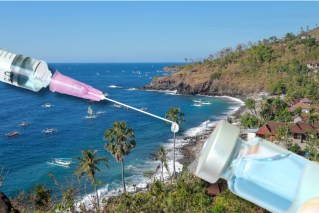Qantas slashes international seats by 90 per cent, warns on jobs

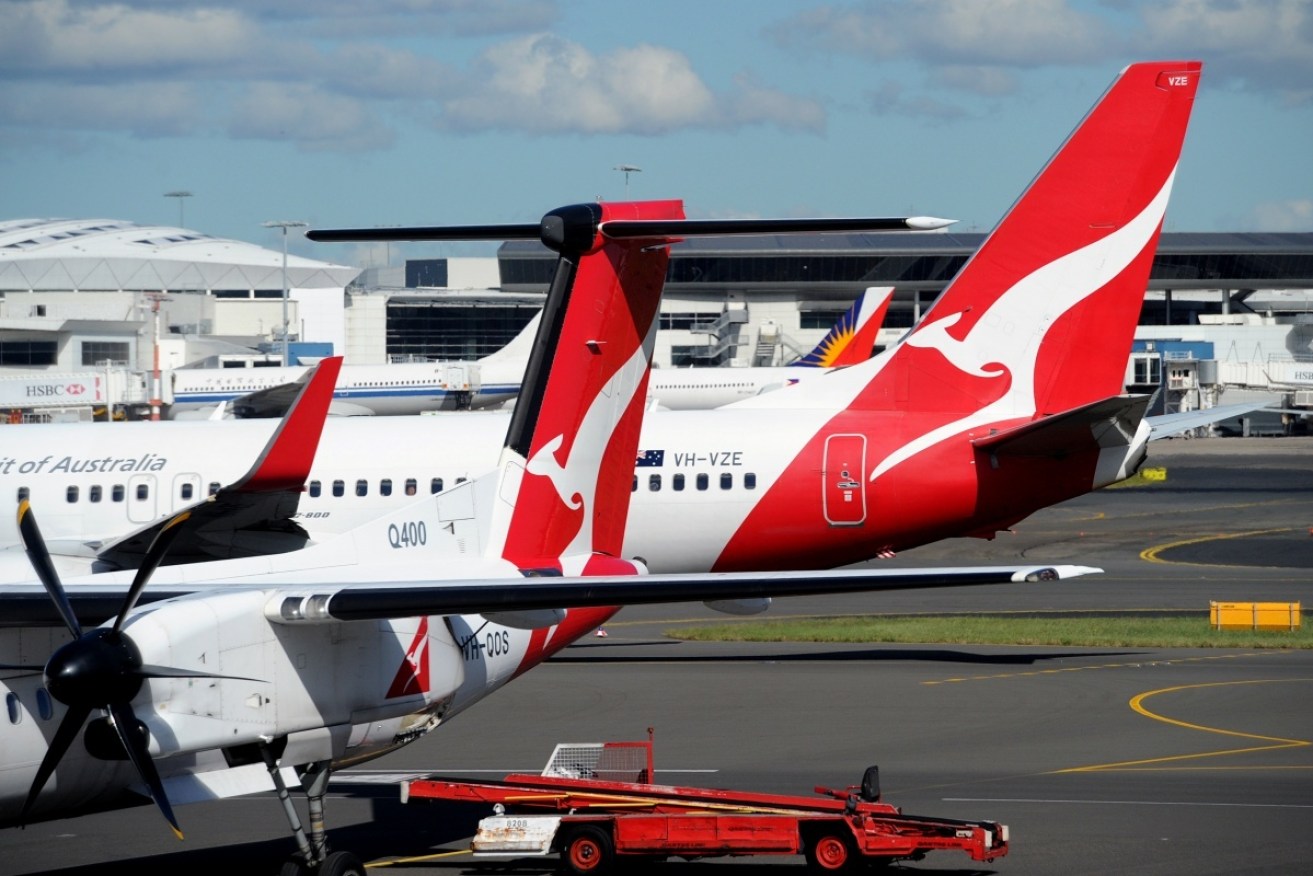
Qantas is slashing international seat capacity by 90 per cent as it battles with the fallout from COVID-19. Photo: AAP
Qantas will slash its international seats by 90 per cent, and domestic capacity by 60 per cent, until the end of May as it struggles with the collapse in demand from the global coronavirus pandemic.
The sweeping cuts, announced on Tuesday morning, are on top of reductions announced last week. In total, they represent the grounding of about 150 planes – including almost all of Qantas and Jetstar’s wide-body fleets.
Qantas, which had already urged its staff to use up any available leave and repeated that call on Tuesday, said “the precipitous decline in demand and resulting cuts to flying mean that the Qantas Group is confronted with a significant labour surplus across its operations”.
“Travel demand is unlikely to rebound for weeks or possibly months and the impact of this will be felt across the entire workforce of 30,000 people,” it said.
Qantas has already said that chief executive Alan Joyce and board chairman Richard Goyder will have their pay frozen for the remainder of this financial year. There have been other pay freezes for the group’s management and board members.
Other flight reductions already announced will remain, at least until September. The route-by-route detail of the latest changes across Qantas and Jetstar will be announced in coming days.
- Qantas, Jetstar to credit customers hit by virus travel bans
- Airline in damage control as COVID-19 hits
Qantas’s dramatic cuts came as a leading Australian aviation expert warned most of the world’s airlines could be bankrupt by the end of May without enormous and coordinated government and industry bailouts.
Sydney-based airline analyst and consultant CAPA Centre for Aviation said airlines faced a huge threat from the coronavirus fallout.
“Demand is drying up in ways that are completely unprecedented,” CAPA said in a report. “Normality is not yet on the horizon.”

Alan Joyce will receive no pay for the remainder of this financial year. Other Qantas staff have been asked to take leave.
Restrictions on international travel due to the deadly coronavirus outbreak are hammering the airline and wider travel industry.
International travellers are required to self-isolate for 14 days upon arrival in Australia. New Zealand has also imposed the same rules for travellers to that country.
On Monday, Air New Zealand put its shares into a trading halt as it slashed passenger capacity by 85 per cent. It also said it would make some of its staff redundant.
“We are now accepting that for the coming months at least Air New Zealand will be a smaller airline requiring fewer resources, including people,” Air New Zealand chief executive Greg Foran said.
In the US, United Airlines Holdings booked $US1.5 billion less revenue in March than the same time last year. It has told employees that planes might fly nearly empty into the northern summer, even after severe flight cuts.
United said it would cut corporate officers’ salaries by 50 per cent and reduce flight capacity by about 50 per cent in April and May.
“This crisis is moving really quickly,” United chief executive Oscar Munoz and president Scott Kirby said in a memo to employees on Sunday.
Tweet from @united
Things worsened over the weekend as Spain declared a state of emergency and the Trump administration added Britain and Ireland to countries facing travel bans.
“We call on Congress and the White House to take all measures available to protect the health and payroll of American workers,” said Sara Nelson, president of the Association of Flight Attendants-CWA, which represents 50,000 US flight attendants at 20 airlines.
US President Donald Trump committed on Monday (US time) to helping the airlines – but has not commented on the roughly $US50 billion ($A81 billion) in assistance the industry has sought.
“We’re going to back the airlines 100 percent,” Mr Trump said in a White House briefing. “We’re going to be in a position to help the airlines very much.”
UK airlines have asked the British government to help ensure their survival, while Germany’s Tui AG and Scandinavian carrier SAS said they would suspend the vast majority of operations due to the COVID-19 outbreak and apply for government support.
UBS analysts said the latest travel restrictions would have a significant effect on Qantas’ international traffic, which historically accounted for about 45 per cent of revenue and 25 per cent of earnings before interest and tax.
“A downside scenario where international traffic is down 50 per cent for a whole year and domestic down 30 per cent could result in cash burn of up to A$200 million ($123.60 million) per month after incorporating changes to the business,” UBS said of Qantas.
Rival Virgin Australia, which has a weaker balance sheet but a heavier domestic focus, said it was assessing its response to the new travel restrictions.
S&P Global Ratings downgraded its credit rating on Virgin to B- and placed it on creditwatch negative due to rapidly deterioriating industry conditions spreading from the international market to the domestic market.
-with AAP
